What is HPV?
HPV, or human papillomavirus, is a common virus that can cause skin warts, genital warts, and lead to 6 types of cancers
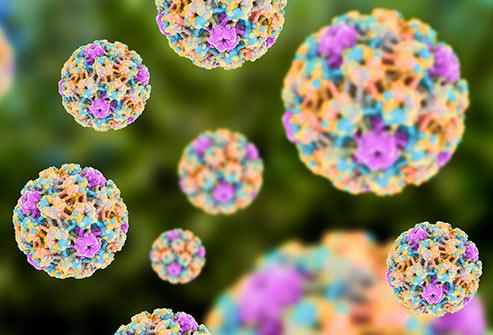 Photo: WebMd: What HPV looks like
Photo: WebMd: What HPV looks like
- There are over 200 types of HPV
- HPV only infects humans
- Most HPV infections typically go away within 12 months
- HPV is very common: 80% of people will get an HPV infection at some point in their lives
- HPV infections that last longer than 12 months increase the chance of becoming cancerous
- The HPV vaccine to protect against HPV is considered effective and is recommended for both men and women up to age 26
HPV-related disease in females and males
Common Warts — HPV warts easily spread from skin to skin contact, and warts are very common. Warts occur in 10 percent of children, with a peak incidence between the ages of 12 and 16. Common warts represent up to 71% of all skin warts followed by plantar warts (bottom of the foot).
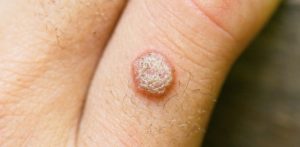
Genital warts — Studies of sexually active people suggest that about 1% of people in the US and approximately 10% in Scandinavia have genital warts. The peak occurrence is between the ages of 17 and 33 years of age.
HPV types 6 and 11 cause approximately 90 percent of genital warts.
Cervical Cancer – Cervical cancer is the 4th most common cancer among women, with approximately 260,000 cervical cancer deaths annually. Evidence linking HPV to cervical cancer is very strong. Almost 100% of cases of cervical cancer are linked to HPV infection.
Anal cancer — Anal cancer is rare in the general population. HPV types 16 and 18 cause nearly 90% of anal cancers.
Oropharyngeal cancer —Oropharyngeal cancers consist of two types of disease: HPV-associated and non-HPV-associated. HPV-associated oropharyngeal cancers are found in the oropharynx and base of the tongue and tonsil, and occurs in a younger population with high-risk sexual behaviors and HPV blood positive. In contrast, non-HPV-associated cancers are associated primarily with alcohol and tobacco use.
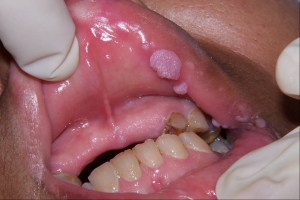
Recurrent respiratory papillomatosis is the most common benign laryngeal tumor in children and is thought to be caused by HPV acquired during passage through the birth canal of an infected mother.
Penile cancer — Penile cancer is rare. HPV types 16 and 18 cause approximately 35 to 40 percent of penile cancers overall
What is the HPV Vaccine?
The first HPV vaccine (Gardasil) was introduced in the US in 2006.
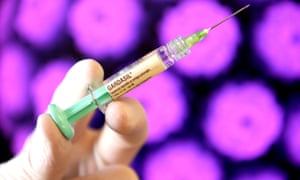
There are now 3 HPV vaccines approved for use in the US.
Routine HPV immunization is recommended in many countries for young adults aged 11-26.
Many studies have reported a declining incidence of HPV infection following the introduction of HPV vaccination. In the USA, the prevalence of HPV in cervical samples from females from the prevaccine time (2003 to 2006) and post-vaccine era (2013 to 2016) decreased by 86% in ages 14-19.
How do HPV vaccines work?
- HPV vaccines stimulate the body’s immune system to produce antibodies that bind to the HPV virus and prevent it from infecting cells.
- HPV vaccines are strongly immunogenic which means that they induce high levels of antibody production in the body. This makes the vaccine highly effective.
- There are no live HPV viruses in the HPV vaccine.
HPV Vaccine Dose
2 doses of the HPV vaccine are recommended for all boys & girls ages 11-12
The vaccine can be given as early as age 9. If you wait until they’re older, they may need 3 doses instead of 2.
Children who start the vaccine series on or after their 15th birthday need 3 shots given over 6 months.
HPV vaccination is recommended for everyone through the ages of 11- 26 years.
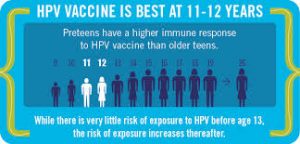
HPV Vaccine Benefits (as per the CDC)
HPV infections and cervical cancers have dropped significantly since the vaccine has been in use.
- Among teen girls, infections with HPV types that cause most HPV cancers and genital warts have dropped 86%.
- Among young adult women, infections with HPV types that cause most HPV cancers and genital warts have dropped 71%.
- Among vaccinated women, the percentage of cervical precancers caused by the HPV types most often linked to cervical cancer has dropped by 40%.
HPV Vaccine Side Effects
- Injection site pain is the most commonly reported adverse events.
- Some young people also faint after getting the vaccine, which is common with many vaccines in kids. Remaining seated for 15 minutes after the injection can reduce the risk of fainting.
- In addition, headaches, nausea, vomiting, fatigue or weakness also may occur.
HPV Vaccine Safety
- All HPV vaccines have documented safety in large clinical trials
- The World Health Organization (WHO) Global Advisory Committee on Vaccine Safety stated that the benefit-risk profile remains favorable for the HPV vaccine.
- Between June 2006 and March 2013, approximately 57 million doses of HPV vaccines were given in the US. Over this time, there were 21,194 official reports of adverse events following HPV immunization; the majority (92%) were mild. Among the more serious complaints were: headache, nausea, vomiting, fatigue, dizziness, fainting and weakness.
- Although sporadic reports had raised concerns about a potential relationship between HPV vaccination and multiple sclerosis, larger studies have disproved this. In a study of nearly four million Swedish females aged 10 to 44 years, receipt of HPV vaccine was not associated with multiple sclerosis.
Who should not get the HPV vaccine?
- The HPV vaccine isn’t recommended for pregnant women or people who are severely ill. Tell your doctor if you have any severe allergies, including an allergy to yeast or latex.
References